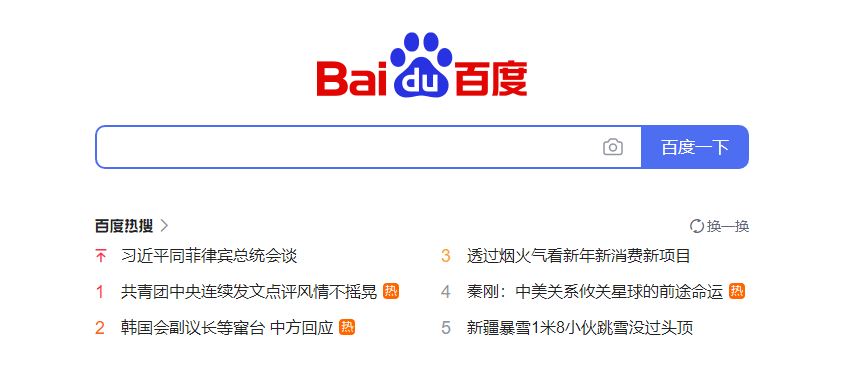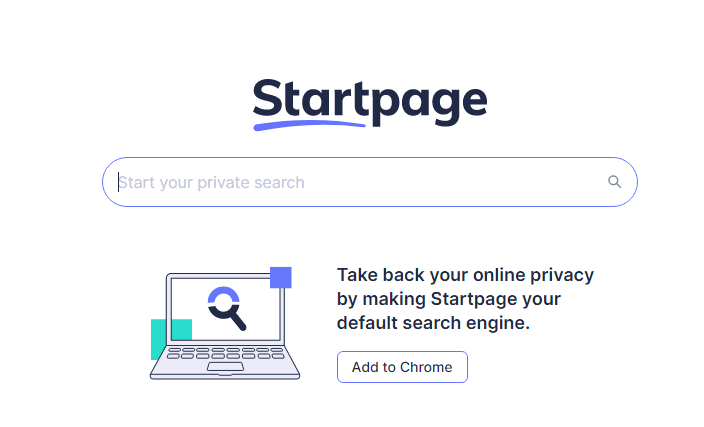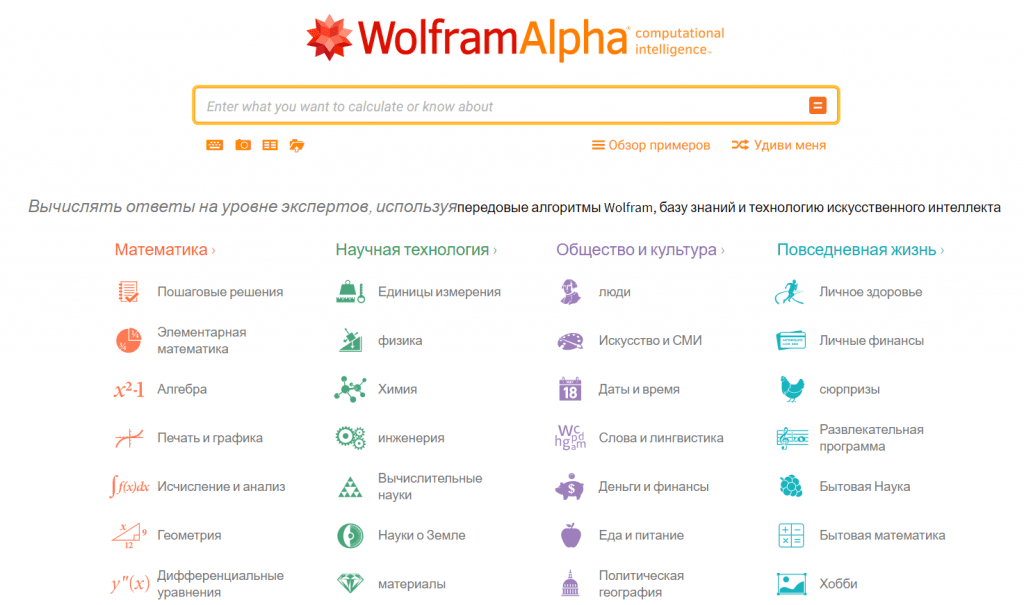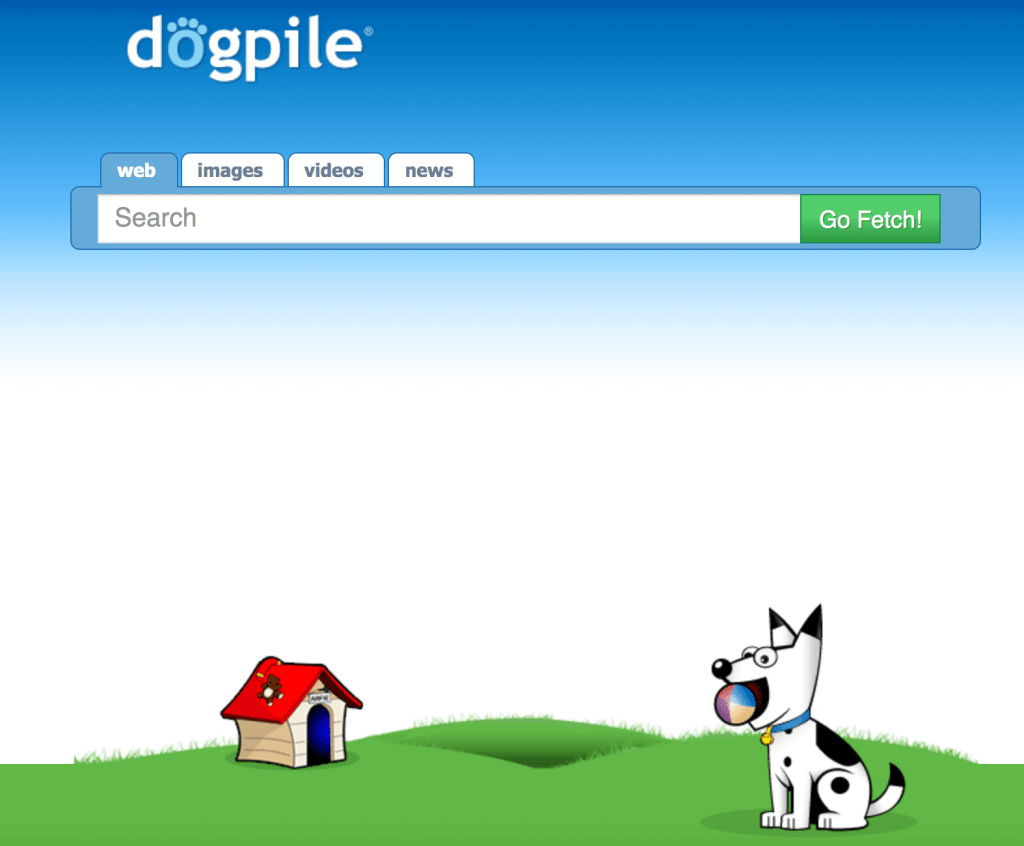Today, the most popular search engine in the world is Google, which captures over 92% of all traffic and connects billions of people. We usually focus on Google traffic when creating a website. However, there are alternative search engines without restrictions and censorship on the internet that also attract a fairly large number of users. While Google offers a vast search index and convenience, people seeking privacy might choose alternatives that don’t track their searches or data. Google alternatives cover different countries around the world. This article will be useful for those readers who are familiar with Google but would like to try other options. We will look at the top alternative search engines and describe the strengths and weaknesses of each of them.
- Acknowledging the Giant
- Alternative search engines to Google
- Yahoo
- Bing
- Baidu
- DuckDuckGo
- You.com
- StartPage
- Alternative search engines without censorship and limitations
- NotEvil
- YaCy
- Pipl
- Wolfram|Alpha
- Dogpile
- BoardReader
- Choice of Search Engines Based on Your Needs
- New alternative search engines on the internet with good potential
- Conclusion
Acknowledging the Giant
Let’s start by acknowledging the most popular search engine in the world — Google. Despite criticisms surrounding data collection practices, Google remains a powerhouse for a reason. Its strengths include:
- Extensive Search Index: Google boasts a massive index of web pages, ensuring a high chance of finding the information you seek.
- Advanced Search Features: Google offers a wide range of search tools like image search, news aggregation, and location-based results, catering to diverse needs.
- User-Friendly Interface: Google’s interface is intuitive and easy to navigate, even for beginners.
At the same time, there are some weaknesses:
- Privacy Concerns: Google collects a vast amount of user data to personalize search results and deliver targeted advertising. This raises concerns about user privacy and data security for some users.
- Vulnerability to Manipulation: Google’s search algorithms can be susceptible to manipulation by bad actors trying to influence search results for malicious purposes.
- Limited Customization: While Google offers some search customization options, some users might find them limited compared to more privacy-focused alternatives.
Keep in mind that Google isn’t the only good search engine. Let’s delve into some popular alternatives.
Alternative search engines to Google
One of the main reasons why despite the high popularity of Google, many people search for information in other systems, which will be discussed below, is the company’s specific data collection policy. The information processed by algorithms does not disappear after the work is done and remains on the servers. And this is extremely inconvenient for various areas, such as affiliates driving traffic to their offers.
Yahoo
The oldest American alternative search engine, which is rightfully considered a legend of information technology. It appeared at the dawn of the development of digital systems and was one of the first. At one time, the company was top-notch and could buy Google with all its assets for just one million dollars. However, decades later, Yahoo found itself on the brink of bankruptcy, which almost led to its acquisition by Microsoft.
Currently, Yahoo is visited by 2.67% of all users worldwide. Essentially, it is a multifunctional service with a rich set of tools, including a search engine and mail service.
While at first being just a search engine, gradually, thematic news, mail, store, and other popular sections began to appear on the main page. It is a worthy replacement for Google with only one drawback — it cannot be installed on a PC and can only be used as a browser version. After all, modern Yahoo is a large internet portal, not a classic search engine. Web search is just one of its functions.
Attention! In fact, the search here is carried out using Bing – Yahoo only controls the design and results displayed in the search results.

Pros:
- Wide range of opportunities for shopping and conducting business. Online storefronts rank high in Yahoo search results.
- Versatility. In one click, you can get the latest news, weather forecasts, etc.
Cons:
- Lack of dating on most search results. Therefore, there is no way to understand whether the information is current or not.
- Too much advertising.
- Lack of a right-hand column.
- Not quite accurate interpretation of user intent. Google is much better in this regard.
Bing
Bing is a web search engine owned and operated by Microsoft, serving as the company’s flagship search technology. It integrates with various Microsoft services and products, enhancing search functionalities within the Microsoft ecosystem. Bing occupies 2.3% of the market. The program has a simple interface with sections — maps, images, videos. There are also many additional tools.
Bing is multilingual and automatically detects the user’s geolocation. There is an opportunity to personalize the system even without registering a profile. During the process of collecting information in response to user requests, an analysis of links is carried out to detect threats, which allows information to be provided from safe sources.

Pros:
- High-quality images and video search.
- Improved integration with social networks. News from there ranks higher in the SERP. In other words, users can access thematic posts from Facebook, Instagram, Twitter directly from the search engine.
Cons:
- Low speed. Bing is not as fast as Google.
- Not inclusive. For example, forums are poorly ranked by this alternative search engine.
Baidu
The most popular alternative search engine in China. The platform has completely displaced Google from the local market, with 97% of the population living in the country using Baidu. One percent each is allotted to the United States and Japan. However, the platform works exclusively in the Chinese language.

Pros:
- AI. Baidu outperforms modern artificial intelligence in this regard.
- Search quality. Some people rightly call it the “Chinese Google”. Indeed, Baidu quickly finds the necessary content with added value.
Cons:
- Censorship. A chronic problem in communist countries. Baidu suffers from it and has to reduce the number of sites.
- Slow loading of large files.
Note: All search engines have the potential for bias in their algorithms. This bias can stem from the data used to train the algorithms, the way the algorithms are designed, and the priorities of the search engine company. For instance, a search engine might prioritize results that are likely to generate clicks or ad revenue, even if those results aren’t the most relevant or accurate.
DuckDuckGo
A well-known American search engine that has an open-source code. Search results are collected from Wikipedia, Bing, and Yahoo. The company provides maximum confidentiality and privacy of data for users. Moreover, the system does not store history and logins. Note that DuckDuckGo doesn’t track users, however, it gathers information from other search engines that might do that.
Unlike most popular search engines where a huge number of filters are set, which adjust the information based on the preferences of a specific user, DuckDuckGo shows the real picture regardless of the user’s previous actions.
Pros:
- Priority is given to confidentiality. Personal user information is not disclosed to third parties.
- No advertising.
Cons:
- Not very user-friendly.
- Less relevant results are displayed as there is no personalization.
- Has few built-in services.
You.com
A relatively new platform developed by former chief scientist of Salesforce, Richard Socher. It is aimed at providing the most relevant answers, allowing the user to get accurate information from a wide range of sources, including forums, communities, and social networks. This provides an opportunity to collect rare LSI phrases.
Attention! The company claims that their platform will not rely on advertising for revenue and is built on advanced language processing technology to refine search results.
The system has a modern interface with user-friendly functionality. The search results are divided into thematic blocks, which speeds up the process of finding the necessary information. At the same time, even little-known websites and projects can make it to the top if they contain an accurate answer. For example, there are many reviews from expert authors and real people. You can say that the system “googles” for the user and provides a complete picture of the search results.
Pros:
- You.com emphasizes user privacy by not tracking personal data or search history, offering a more private search experience compared to other search engines.
- Users can customize their search experience by prioritizing sources they trust and organizing search results in a way that suits their preferences.
- Currently, You.com offers an ad-free search experience, which can lead to cleaner and less distracting search results.
- You.com aims for transparency in its algorithms and how search results are ranked.
Cons:
- As a newer search engine, You.com may have a smaller index compared to established giants like Google or Bing, potentially leading to fewer or less comprehensive search results.
- As a developing platform, You.com is continuously evolving, which might result in occasional bugs or inconsistencies in user experience.
StartPage
Unlike its competitors, this system uses a personal engine, but the software is slightly weaker than that of its competitors. The basis of the search is taken from Google, but all queries remain anonymous, and the search is not based on the user’s personal preferences.

StartPage ensures complete confidentiality. By using proxies and generating unique URLs, the need to use cookies is eliminated. Thus, users get complete anonymity of their actions on the Internet. The system does not even record IP addresses and offers an additional private surfing mode.
Pros:
- Does not store user IP addresses and does not use tracking cookies on devices.
- All user search queries on the start page are encrypted using HTTPS. This option protects against tracking on the Internet. No one will be able to intercept your connection (for example, in a public Wi-Fi network) to see what queries you are surfing.
- Anonymous browsing function. Allows you to view any site in the search results list through a proxy server, thereby hiding location, internet provider, browser type, network settings, and more.
Cons:
- StartPage earns revenue from advertising. Therefore, the search results include many advertiser sites.
Alternative search engines without censorship and limitations
The main reason for refusing to use Google is the fact that the platform actively collects personal information from customers. Online tracking is not a myth, but a fact that has been talked about for a long time. To avoid worrying about your data, searches, and movements, it is worth giving preference to more reliable search engines. Let’s consider the best systems that have no restrictions and censorship.
NotEvil
This search engine operates on an anonymous Tor network and doesn’t require a separate browser for use.

The platform provides access to resources that Google doesn’t display, such as personal libraries, blogs, news outlets, online stores, and more.
Pros:
- NotEvil does not track your search queries or personal information, providing a high level of privacy.
- NotEvil prioritizes user anonymity, which can be beneficial for users concerned about surveillance.
- Unlike many mainstream search engines, NotEvil typically does not display ads, offering a cleaner search experience.
Cons:
- Search speed and performance might be slower compared to other search engines.
- Being a niche search engine, NotEvil might lack the customer support and resources available with mainstream search engines.
YaCy
YaCy is a decentralized search engine that utilizes a P2P network. Users who have the software installed on their computer or mobile device can automatically scan the network using a search robot. The results obtained from a query are then fed into a shared database.

The technology and information-gathering methods used by YaCy are vastly different from traditional search engines such as Google. Since there is no single server, the search results aren’t dependent on any particular user. There is no censorship, and the data is sourced from deep levels of the internet, including non-indexed networks. This is an excellent option for those who value a free and open internet.
Pros:
- YaCy operates on a peer-to-peer network, meaning there is no central server controlling the search index. This makes it resistant to censorship and centralized control.
- YaCy is open source, allowing anyone to inspect, modify, and contribute to the code. This transparency leads to increased trust.
- It offers a high level of privacy. User search queries are not tracked or logged in a centralized manner.
Cons:
- As a decentralized network, YaCy’s search performance and speed can vary depending on the number of active peers and the quality of their connections.
Pipl
Pipl is another interesting alternative search engine that doesn’t impose any restrictions on users. The developers claim that the adaptive algorithms they use completely eliminate any blocking. The search process is based on structured information from databases, comments, social media, and more.

This is a great option for conducting comprehensive searches on individuals, companies, or events.
Pros:
- It aggregates data from multiple sources, providing a consolidated view of an individual’s online presence, which can be useful for background checks, investigative purposes, or reconnecting with old acquaintances.
- Pipl allows for advanced search parameters, helping users narrow down results and find specific information efficiently.
- Pipl can search the deep web, accessing information not indexed by other search engines, such as certain databases and online directories.
Cons:
- Many of Pipl’s more advanced features and detailed reports require a paid subscription.
Wolfram|Alpha
This unique computational search platform enables independent analysis of objects, goods, events, and more. Results are presented in the form of charts, tables, and reports. It specializes in factual information and data analysis

This platform is especially useful for obtaining systematic computational information sourced from the internet.
Pros:
- The information is derived from verified data sources, ensuring high accuracy and reliability.
- Wolfram|Alpha often presents results in an interactive format, allowing users to manipulate variables and see how changes affect outcomes.
- It is good at performing complex calculations, generating plots, and solving equations, making it invaluable for students, researchers, and professionals in technical fields.
Cons:
- Some advanced features and extended computational capabilities require a paid subscription to Wolfram|Alpha Pro, which may not be justified for casual users.
Dogpile
The platform performs a metasearch of the query on various alternative search engines such as Google, Yahoo, Bing, Yandex, and others.

The creators assure that Dogpile can provide users with the most comprehensive information from all corners of the internet. This is an excellent option if there is no way to find the desired data in popular systems.
Pros:
- Since it aggregates from multiple sources, Dogpile can reduce the bias inherent in any single search engine’s algorithm, offering a more balanced view of search results.
- Dogpile has a straightforward and easy-to-use interface, making it accessible for users of all levels.
- By pulling results from several search engines, Dogpile provides a more comprehensive set of search results, potentially giving users access to information they might miss using a single search engine.
Cons:
- Aggregating results from multiple search engines can sometimes lead to slower performance compared to using a single search engine directly.
BoardReader
It provides a convenient search for uncensored and unrestricted textual information. The purpose of the BoardReader search engine is to specifically search for textual information on forums, message boards, comments, posts, and notes across the internet.

The system of additional filters allows narrowing down the results and obtaining the most accurate answer to a specific query.
Pros:
- It consists of a wide range of forums and message boards, providing access to a diverse array of opinions, experiences, and insights from across the internet.
- BoardReader often provides real-time search results, allowing users to find the most recent discussions and posts on a topic.
- It offers advanced search capabilities, enabling users to filter results by date, relevance, language, and specific forums.
Cons:
- Not all forums and message boards may be indexed by BoardReader, leading to potential gaps in search results, especially for more obscure or less popular communities.
Choice of Search Engines Based on Your Needs
We provided you with a list of 18 possible alternatives to Google. Now you may wonder: how to choose? Well, the answer will depend on your goals. Here’s a breakdown of when you might prefer a particular search engine based on its strengths:
- Privacy focus:
- DuckDuckGo: Doesn’t track searches, uses anonymous sources for results, and blocks trackers on websites visited through search links. DuckDuckGo team clearly states it in the privacy policy.
- StartPage: Sends anonymized searches to Google and offers optional proxy browsing for further anonymity. You can read more info about that on their website.
- NotEvil: Encrypts connections and uses a decentralized network (Tor) for maximum anonymity.
- In-depth research:
- WolframAlpha: Provides factual information, data analysis, and reports derived from verified sources. Presents results in a structured format (charts, tables).
- Specific content:
- Pipl: Conducts comprehensive searches on people, companies, or events using data from various sources (databases, social media).
- BoardReader: Focuses on uncensored discussions and textual information from forums, message boards, and social media posts. Offers advanced filtering by date, relevance, and specific forums.
- FindSounds: Specializes in finding sounds based on user-provided tags.
- Decentralized search:
- YaCy: Uses a peer-to-peer network, making it resistant to censorship and centralized control. Offers a high level of privacy by not tracking or logging user searches in a centralized manner. Find more details on their website.
- Answer-focused search:
- ASK.com: Aims to provide full articles in response to user queries, rather than just links.
For more clarity, we decided to make a table comparing the search engines with features like privacy focus, content focus, and unique features:
| Search engine | Privacy Focus | Content Focus | Unique Features |
| Low | General | – | |
| Yahoo | Medium | General | Integrates various tools and services (mail, news, finance) |
| Bing | Medium | General | Integrates social media and news results |
| Baidu | Low | Primarily Chinese | Focuses on AI and prioritizes content approved by Chinese censors |
| DuckDuckGo | Hight | General | Doesn’t personalize results, emphasizes privacy |
| You.com | Medium | General | Aims to find the most relevant answers across the web using various sources |
| StartPage | High | General | Uses Google results anonymously |
| NotEvil | High | General | Accesses resources not shown by Google, operates on an anonymous Tor network |
| YaCy | High | General | Decentralized search engine using peer-to-peer network |
| Pipl | Medium | Specific (people, companies, events) | Searches structured information from various sources |
| Wolfram|Alpha | Medium | Specific (research) | Provides results in form of charts, tables, and reports |
| Dogpile | Medium | General | Metasearch engine that searches various engines simultaneously |
| BoardReader | Medium | Specific (textual information) | Focuses on uncensored social media and forum content |
| AOL | Medium | General | Offers various additional services like weather, news, and email |
| Ask.com | Medium | Specific (answers) | Provides full articles in response to queries |
| EXCITE | Medium | General | Offers various additional services like weather, news, and events |
| Swisscows | Medium | General | Uses semantic search to understand user intent |
| FindSounds | Medium | Specific (sounds) | Provides results in the form of charts, tables, and reports |
New alternative search engines on the internet with good potential
Today, there are a huge number of search engines. Some of them can be considered a full-fledged alternative to Google, while others have a more narrow specialization in search. Well-tuned tools and filters allow you to quickly obtain accurate information according to the query. Let’s look at platforms with high potential for development:
- AOL. A relatively young and promising American search engine that has been actively developing lately. It has an extensive functionality, which attracts the audience.
- ASK.COM. An unusual platform that operates on a principle similar to “Answers” website. The main difference is that users receive not just a brief answer to their queries, but full articles.
- EXCITE. In addition to the search field, customers are offered a wide selection of additional services such as weather, news, events, etc. The platform provides a lot of interesting, relevant, and truly useful information.
- WOLFRAM ALPHA. It is particularly popular among students, as all the information provided is based on authoritative sources. This significantly simplifies the process of writing thematic works.
- Swisscows. The work of the search robot is based on semantic search using artificial intelligence. Thus, the system tries to predict what answer the user wants to receive.
- FindSounds. A narrowly specialized platform focused on finding sounds based on given tags. The audience coverage is not yet large, but the platform is gaining momentum.
Almost all search engines pay close attention to website navegation and so-called breadcrumbs are a part of it. You can read more about breadcrumbs in our article.
Conclusion
Undoubtedly, Google is the leader among the world’s search engines. The platform has a huge audience coverage and includes a large list of additional options. However, the service is not without its drawbacks. Tracking desires, personal data, and geolocation is not liked by everyone, which is why users are increasingly looking for alternatives.











